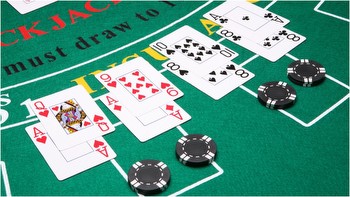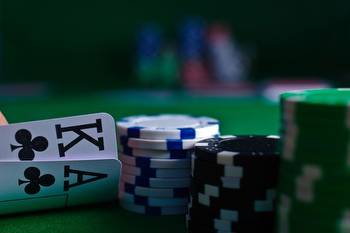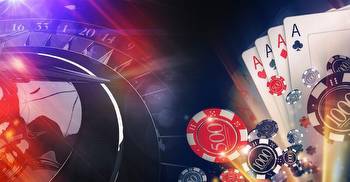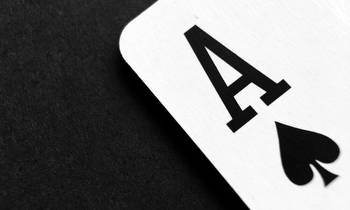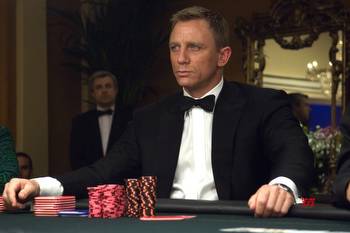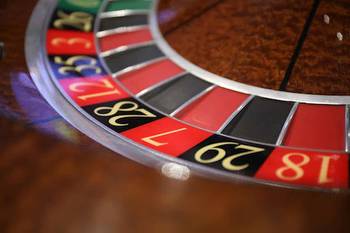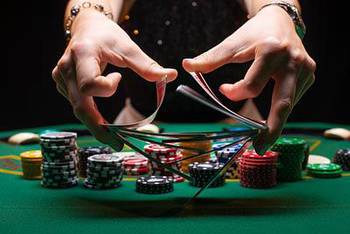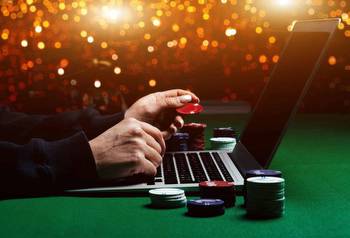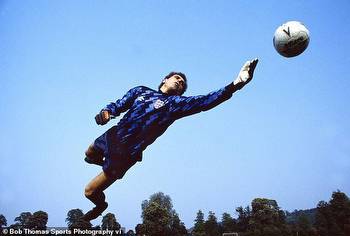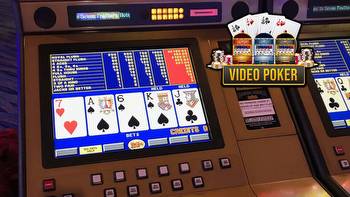What I Learnt Gambling Online For a Living

Determined not to work, I tried online poker. Photo: Bruno Vincent/Getty Images.
For the better part of the last two years, I’ve been away from my home in Melbourne exploring the world – hitchhiking from San Diego to Vancouver, squatting in factory ruins Warsaw and freezing through Estonian winters to remerge for Amalfi summers. Through all my adventures I’ve been intentionally unemployed. So how have I kept myself afloat? The answer is simple: online gambling.
To clarify, I’m no super yacht, white suit, cocaine-shovelling high roller, my aim was simply to make enough to support my travels and not have to work otherwise. And if it still isn’t clear: online gambling is NOT good. It’s had a very negative effect on my life and many other’s lives and it will on yours too. But here’s how I did it.
I got into gambling when I was penniless in Poland. While drinking away my few remaining złoty, I was lucky to meet a friend who suggested I stay in a squat across the river. There, down and out, I was determined to make money through whatever hustle possible.
My mind ran through a million possibilities and at the end of the tunnel I saw bright lights, a roaring thrill… Could it be that poker was my salvation? I was pretty sure I was good at it. I had played a lot with friends during COVID and remembered winning a lot, so how different could it be?
As it turns out, not very. Every day I used Starbucks wifi across to play poker through a VPN. My vice is Texas Hold’em – a no-limit version of poker where anyone can put in as much money as they like at any point in the game. After the betting rounds, all players reveal their hands and whoever has the strongest five cards wins. It’s a simple but highly volatile game.
I only had $50 to put in at first, so I began with small games, putting in $2 at a time. To my surprise, my opponents were really weak. Within a day, I had my $50 back and had grown it to $60. Within a week I had over $100. By the end of the month, I had $1000.
Pretty soon, things started to break down at the squat between a couple of residents. in the end there was no peace to be had, and the first fist flew. It all got out of hand very quickly, with a molotov being thrown into our squat through the narrow door. The police were called quickly after. Thankfully no one got seriously hurt, but the squat was no more.
By the end of the two months, I’d saved enough to be in pretty good stead to pay for accommodation, so I met up with a friend to spend some time in the Balkans. But a month later, I was sitting in Rijeka redlining, realising I’d burnt through just about everything I’d saved and that it was time to get back on the grind.
It was time to head to Estonia to complete a semester at university. Outside class, I spent every spare second on the tables.
With the stability of study keeping me anchored, I found the draw of the game became infinitely more. I no longer felt like I had to play to survive, it had become uglier. This infinite potential began to work against me and, as the months crept on, I found I played more for fun, prioritising the thrill to the real monetary gain I had proved to myself I could easily reap.
When you lead your opponent to believe you don’t have the hand you’re claiming to and they bet big; when your opponent has you dead-to-rights but you pull off that perfect bluff and they fold; when you simply show the better hand at showdown – each time that familiar chill comes to sweep over you it scratches an itch.
But, unsurprisingly, you do have days where the ‘right’ thing loses you a lot of money. The way to end up on top is to always remember that somewhere on the horizon is that golden day when it’ll all come pouring back. I began to lose sight of this very quickly.
A day comes when you lose ten hands in a row, knowing you should have won all of them. Luck can’t be this cruel, right? So you think: it has to turn around, and you chase your losses by buying into a more expensive game, figuring if luck turns around now you’ll be making twice or three times as much as you would have been. This way you can make back what you’ve lost, and then go back to your regular stakes once order is restored.
So you bide your time and bet it all on a hand that you should win, and with this one double-up you’ll be back to your starting amount which you can then double one more time to have made a great profit for the day … except you don’t win.
You’re left staring at the buy-in screen, telling you to go to the cashier should you wish to buy in again. And buy in you may, but every loss sends you further towards an absolute death drive; every minor inconvenience becomes a road-raging headache, and signs you were once able to recognise as expressions of your opponents’ strength you now doubt, sending you falling further off the deep end, steaming as you watch your cash drain away.
It’s a cruel mistress and I’ve had some hard times.
Yet, no matter how long I spend crawling away from online gambling, the promise of the thrill comes tickling at the back of my mind, and all that once troubled me greatly shrinks beneath a newfound confidence.
I’ve made money doing this so many times before, so why did I stop? I had an unlucky day? Well, nothing I can do about that, right? Lady luck’s promised kiss is waiting for me, and how can I hope to collect it if I won’t pick up my cards? And I buy back in.
I find my mind creeping back towards the table as I fumble through whatever other tasks or hobbies I pursue to try to entertain myself.
I start gambling for slightly longer while my other hobbies are forgotten and, whether I’m winning or losing, I’m convinced I should keep going.
The next bad day sends me back to square one and convinces me that I should buy back in to recoup my losses, all so I don’t have to worry about dealing with that tomorrow. And when everything is running smoothly, I’m making good money, why not make a little more?
Is this addiction? Well, yes. Is it worth funding a lifestyle of adventure through a vice that drains life from anything except itself? I’m not sure anymore.
My latest bad day lost me 13 50/50 flips in a row. Incredibly unlucky. In fact, that kind of loss is a a one-in-8192 chance, or 0.01 per cent.
The result? An empty account, a feeling of sorrow and a lingering expectation that, should I pick up the cards again I’d be re-rewarded my temporary sacrifice. And, if anything, statistics would support my theory. That’s the problem.
So, is that it? Or is it time to lay the cards down and focus on the moments in between with a mind uncluttered by the eternal thrill?
Like any addict, I cannot find or share the answer. But if I had to leave you with anything, I’d go to the wise words of Kennie Rogers: You’ve gotta know when to fold ‘em.








